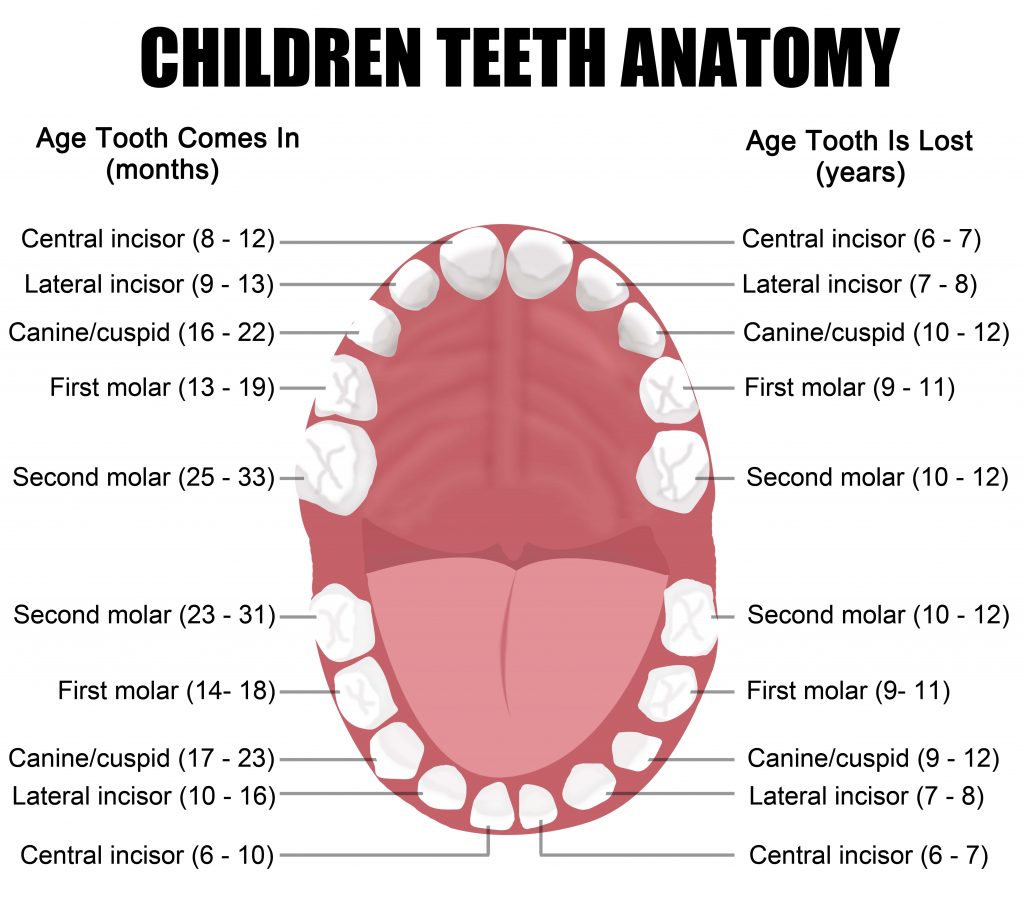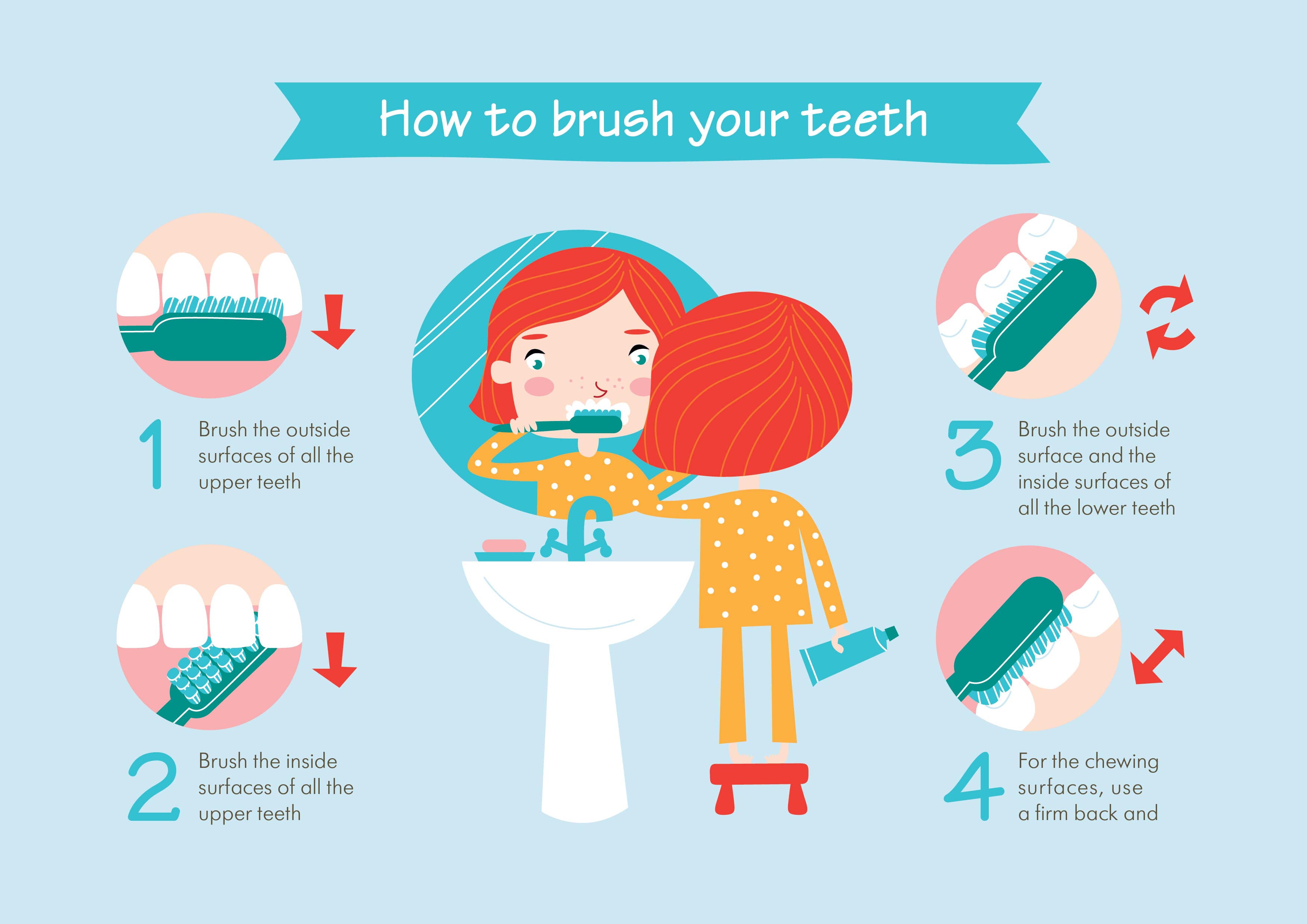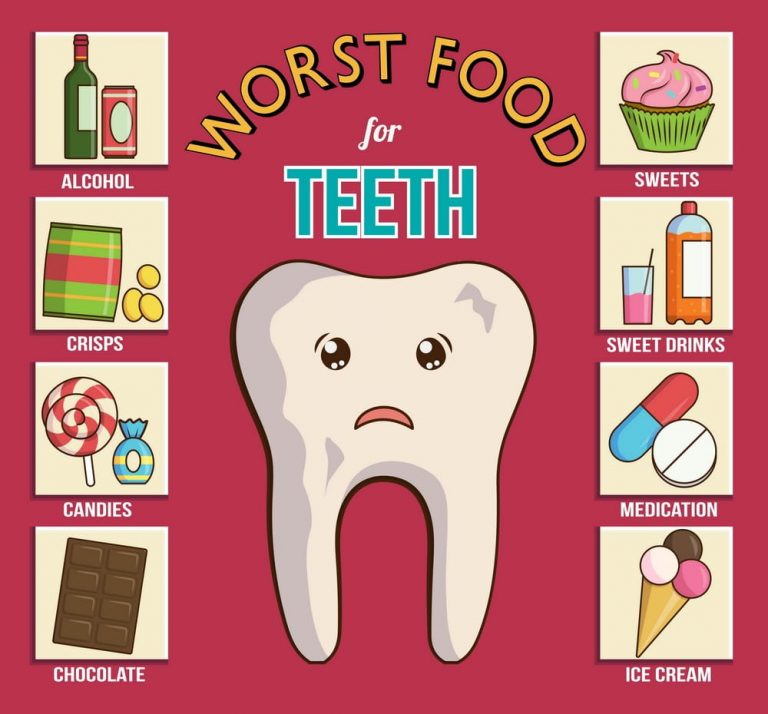Starting good dental health care from an early age is the most effective way to protect your child from tooth decay and other dental problems. A toothache or cavity without appropriate dental treatment can further lead to severe pain and infection. So, you can follow some simple yet effective child dental care tips to prevent cavities and other oral problems.
How you can protect your child’s teeth – follow these tips?
You can protect your child’s teeth by following these steps:
- Start a proper oral hygiene routine
- Brush the teeth with utmost care
- Start teaching your children the right brushing techniques
- Check the water source
- Prevent cavities
- Avoid sugar intake
- Limit the intake of juices
- Avoid tooth decay due to baby bottle
- Control the use of Sippy cup
- Childproof your home
- Be cautious about sweet medicines
- Be firm on the brushing, flossing, and rinsing

Start a proper oral hygiene routine:
After every feeding, clean the gums and newly erupting first teeth of your infant with a gauze pad that is water-soaked or with a moist washcloth.
Brush the teeth with utmost care:
When the teeth of your baby come in, brush them very gently by using a small and soft-bristled toothbrush and a thin coating of fluoridated toothpaste.
Start teaching your children the right brushing techniques:
On reaching the age of 3 years, start teaching your child the proper techniques of brushing with using only a pea-sized quantity of fluoridated toothpaste. Follow your child’s effort by brushing his/her teeth again gently. Most importantly, demonstrate the correct techniques. When your child reaches the age of 6 years, he/she ought to be developing the skill to do the brushing alone. After that, you can also teach your child flossing.
Check the water source:
Checking whether the water supply that is serving your home is fluoridated, is another important step that you can take to keep your child away from dental problems. If the water supply is not fluoridated then discuss the supplement alternatives with the dentist.
Prevent cavities:
Discuss with your dentist about the use of dental sealants and the fluoride applications for protecting your infant’s teeth. Sealants can prevent the food particles from getting stick in the tiny channels that are present on the teeth chewing surfaces. Topical fluoride helps in strengthening the enamel against the decay.
Avoid sugar intake:
It takes the saliva a minimum of 30 minutes to neutralize the acidity that is produced by the decay-producing bacteria found in sugary snacks, foods, and fluids. This acidity can cause tooth decay. If your child is eating a sugary snack or anything every hour then it means the child’s mouth is continuously acidic, leading to tooth decay.

Limit the intake of juices:
Lots of parents think that juice is a healthy drinking option but it can be a major cause of tooth decay. So, limit the intake of juice to around 4 ounces every day of 100% fruit juice. At the mealtimes, give your child non-sugary foods and drinks.
Avoid tooth decay due to baby bottle:
Don’t put your child down for a sleep with a bottle that is filled with juice, breast milk or formula. The frequent use of sugar-containing liquids for a long time period can potentially cause tooth decay. You can give a bottle that is filled with water only.
Control the use of Sippy cup:
You can use a Sippy cup to help your child to move from a bottle to using glass, but make sure that your child doesn’t use a cup continuously the whole day. This is because using a Sippy cup too often can lead to the tooth decay on the back of the front teeth when the drink is sugary.
Childproof your home:
According to research, those children who are under the age of 7 years get more than half of the dental injuries to their baby teeth when playing closely around the home furniture. So, ensure that your child is not playing close to the home furniture.
Be cautious about sweet medicines:
The medications of children are often sugary and flavored. While sticking on the teeth, they can increase the risk of cavities. Children who are taking medications for chronic health conditions such as heart problems or asthma often affected by tooth decay.
Asthma medications and antibiotics can cause candida (yeast) to overgrow that further leads to a fungal infection, called oral thrush. The symptoms of oral thrush are creamy, curd-like spots either on the tongue or inside of the mouth.
If your baby is taking any long-term medication, discuss with your dentist about how frequently to brush. It can be four times a day.
Be firm on the brushing, flossing, and rinsing:
If your child becomes fussy at the time of brushing, flossing and rinsing, take a firm stand and make sure that your child should be following this dental care routine.
Here are some tips that help your hesitant child to brush, floss and rinse on his own and get your child to let help you:
- Children can begin brushing their teeth with the help of an adult. They may not be prepared to do this on their own until the age of 6 years. Also, they become perfect in flossing skills around the age of 10 years. So, be patient in all this time.
- If your kid is tired then he/she may not cooperate with you much for the brushing, flossing and rinsing. So, make sure that you can start this much earlier before bedtime.
- Let your child choose the toothpaste. Children of 5 years or older can choose on their own from the various options that you approve.
- Motivate your child by doing different things such as you may offer him/her a sticker or gold stars on the chart, etc. You can also make a group activity.

Conclusion:
Teaching your child proper dental care at a young age is the most important benefit to his/her health. The dental care tips for the kids that are mentioned above will protect their teeth and prevent the risk of cavities and other dental problems.
You can also visit the dental health care clinic if you need any professional advice or assistance for the dental health of your child.
